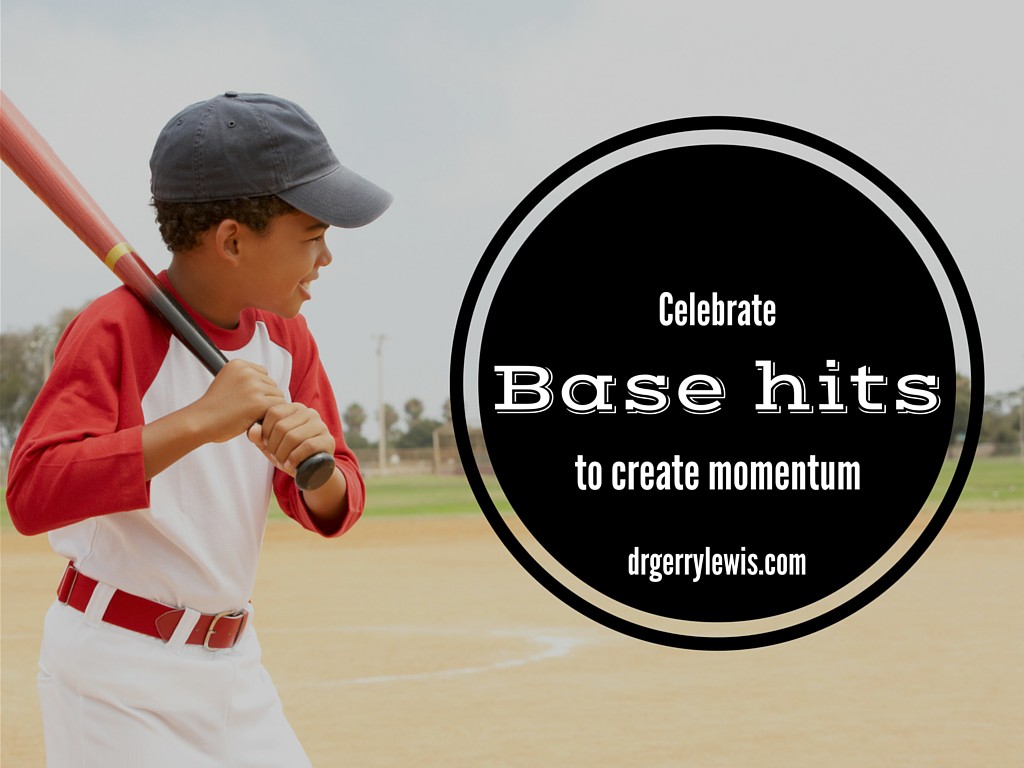
It’s baseball season! Who doesn’t enjoy a day at the ballpark and cheering when the home team knocks it out of the park?
Just like baseball fans love home runs, so do churches and service organizations. I’m sure you’ve heard people say things like:
• “Boy, the pastor hit a home run with that sermon!”
• “That fundraiser event was a home run!”
• “Our contributions have been down lately. We really need to knock it out of the park with our next emphasis!”
Sometimes we act like only home runs matter. Why would we ever be satisfied with a little old single when we should be swinging for the fences? Don’t we value excellence?
Yet, as I ponder the similarities between baseball, church life, and service organizations, three questions come to mind:
1. Why are we always looking for home runs in the form of exciting events or promotional “extravaganzas?”
That’s easy. “Roundtrippers” are exciting and dramatic. When I attend a Texas Rangers game, a Rangers’ homer sparks fireworks, loud music, and deafening cheers. With one swing, everything changes. In just seconds, a grand slam can transform a three-run deficit into a one-run lead and shift momentum.
That’s why homers are so addictive—and so dangerous. The batter that loses perspective can swing for the fences every time and wind up often striking out. Compare Major League Baseball’s all-time home run leaders and all-time strikeout leaders; you will find a lot of the same names on both lists.
As a longtime Rangers fan, it’s painful to recall them leading the league in homers four of five years from 2001 to 2005 and not coming close to the playoffs. Winning a home run title is little consolation for a losing season.
2. What are the benefits of a base hit?
A base hit may not create the same adrenaline rush, but it keeps the team moving forward. If a team can string enough base hits together, it is going to score. Keep hitting and scoring and it wins.
The church that is continually engaging with and serving its community and demonstrating the love of Christ—despite a lack of visible excitement—is like a steady hitter. So is the organization that consistently touches one life at a time. The leaders in batting average, runs batted in, and on-base percentage are usually not power hitters. They just continue “making contact.”
Here’s a truth you can take to the bank: the team with the most home runs is not guaranteed a win, but the team that scores the most runs always wins.
3. So, what are the implications for churches and organizations?
A base hit represents the power of incremental change. We often fail to meet goals because we try to get from point A to point Z instead of from A to B and then C. A base hit is a reminder that small victories have a cumulative effect and create momentum.
A base hit is also a powerful reminder of the encouraging culture of celebration. If we only celebrate home runs, we will fail to encourage and empower those who are “making contact” and moving forward daily.
A base hit also minimizes the focus on “me” and recognizes the synergy of “we.” For the church, it is a visible witness of the “body” metaphors in 1 Corinthians 12 and Romans 12. After all, the only “Hall-of-Famer” in the body is the Head. Base hits matter to Him.
This leaves the most important questions: What was the last base hit your church or organization celebrated? How will you encourage the next one?



